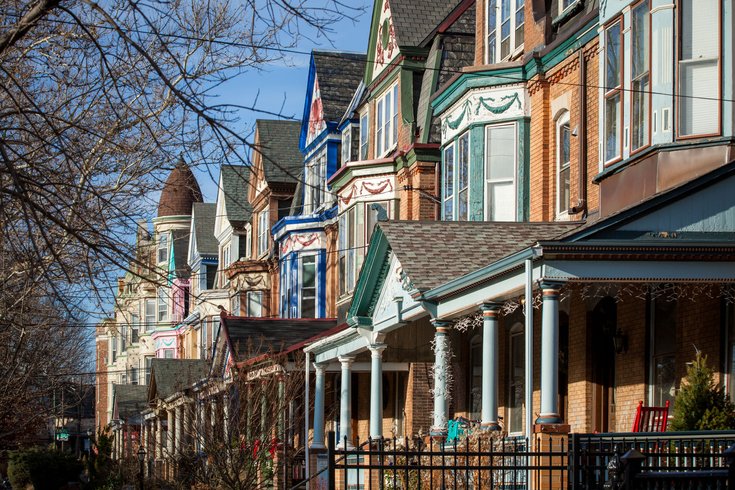
February 20, 2016
 Thom Carroll/PhillyVoice
Thom Carroll/PhillyVoice
Vibrant rowhomes with large porches are a common sight in West Philadelphia.
The Centers for Disease Control and Prevention has awarded the University of Pennsylvania a $1.4 million grant to support research that will empower community leaders in the West Philadelphia Promise Zone to create programs addressing chronic health problems among neighborhood residents.
Launched by President Obama in 2014, the Promise Zone initiative aims to uplift communities trapped in a cycle of deep and persistent poverty as a result of job flight, limited educational opportunities and high rates of crime. The West Philadelphia Promise Zone, one of five in the U.S., covers approximately two square miles from the Schuylkill River west to 48th Street and from Girard Avenue south to Sansom Street.
Within that area – including neighborhoods such as Mantua, Powelton Village and East Parkside – more than 35,000 residents confront an overall poverty rate of 50.78 percent. That's nearly double Philadelphia's rate of 26.9 percent, according to city statistics.
In cooperation with the Mayor's Office of Community Empowerment and Opportunity, the Penn Prevention Research Center will provide skills training to selected leaders who can implement health programs to help prevent chronic diseases such as diabetes, hypertension and obesity, The Daily Pennsylvanian reports.
Penn professor Francis Barg, who leads the program and will select its leaders, said that invitation notices have been sent to organizations affiliated with the Promise Zone. His colleague, family medicine and community health professor Peter Cronholm, added that the program is designed in part to make up for the negative effects of gentrification that have accompanied Penn's expansion in West Philadelphia.
“We have a long history of disappointing the community we serve. I think one of the large initiatives was to really put the department of family medicine and community health at the interface between the health care system and the community, and so I think that was a charge given to our department,” Cronholm said. “For years our department has developed very mature and mutually rewarding partnerships with the community.”
In addition to encouraging practices consistent with preventive medicine, Barg and Cronholm hope that community partnerships will leverage West Philadelphia's human capital to provide residents greater equality and access to resources.
Other institutions participating in the West PhiladelphiPromise Zone initiative include Drexel University, Mt. Vernon Manor, Philadelphia LISC, People’s Emergency Center, Philadelphia School District, Philadelphia Redevelopment Authority, the City’s Commerce Department, Philadelphia Housing Authority, Office of Housing and Community Development, the Philadelphia Zoo, PHS, Philadelphia Works, Inc, and University City District.